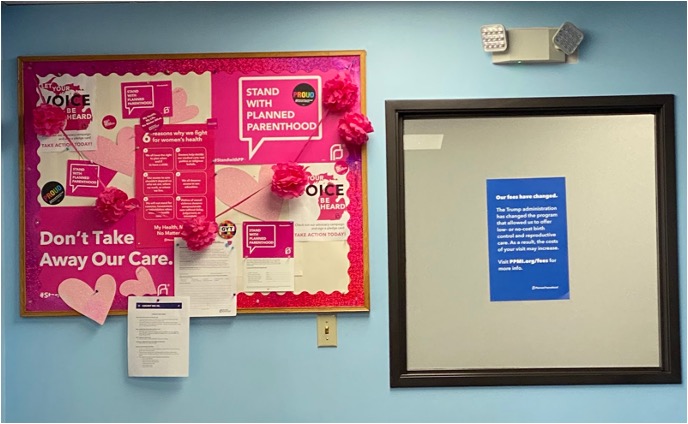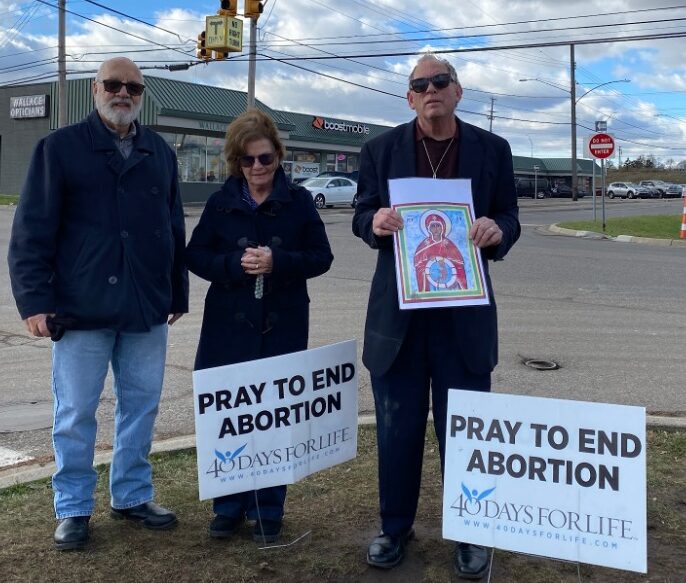On Dec. 10, a majority conservative U.S. Supreme Court ruled in favor of a federal lawsuit challenging Texas’ abortion ban. The bill bans abortions after five-and-a-half or six weeks of pregnancy or when initial fetal cardiac activity is detected. The Texas law will remain in effect during the challenge, which will now proceed in a lower federal court.
The ruling doesn’t address whether a majority of the Supreme Court believes the ban is unconstitutional, but that decision could come soon. On Dec. 1, Dobbs v. Jackson Women’s Health Organization was argued before the Court, in which Mississippi appealed a circuit court decision throwing out its 15-week abortion ban.
Michigan could adopt a similar ban. On Oct. 20, a so-called “heartbeat” bill was introduced in the Michigan House of Representatives and referred to the Committee on Health Policy. The bill would make abortions illegal after a fetal heartbeat is detected, at five-and-a-half or six weeks of pregnancy.
Rep. Julie Brixie, D-69th District, said, “That’s bad … It means the bill will get a hearing … Or maybe they’ll give it a hearing, but they won’t put it up for a vote. But, if Roe v. Wade falls, Michigan has a 1936 bill that says all abortion is illegal and doctors will be penalized for performing them. There are no exceptions.”
If passed, the Michigan bill would make abortions illegal for a woman facing a tubal or ectopic pregnancy.
“In many instances…the fetus is growing and the fertilized egg goes into the tube instead of the uterus…it attaches and begins to grow. As it grows, it’s in the wrong place and will burst the tube… it can cause uncontrolled bleeding and infection,” Brixie said. “It is a very, very, very serious condition. And yet it would be illegal to treat a tubal pregnancy because it is technically an abortion.”
According to the bill, any person performing an abortion after detectable fetal cardiac activity would be charged with a felony. The practitioner could also face two to four years in jail, or six to 15 years if the procedure results in the patient’s death.
“Right now, Roe v. Wade says you can’t ban viability. This is a direct challenge to it….Very similar to what we saw with the Texas heartbeat bill,” said Rep. Steve Carra, bill co-sponsor.
The bill’s intention is to take down abortion, outlaw it completely, Carra said.
“I believe that life begins at conception….The heartbeat bill is a good vehicle towards getting to that position because Roe v. Wade was founded on potential human life in the womb… the court has to weigh a state-interest calculation,” he said. “We need to make the scientific and medical argument that there’s a detectable heartbeat…It gets us closer to the ultimate goal of protecting life from the moment of conception. But, we need to make those strong and persuasive arguments that Roe v. Wade was founded on a demonstrably erroneous foundation.”
Carra said he intends to continue supporting local pregnancy resource centers as Roe v. Wade is challenged.
“They do a very good job in their local communities of helping people who are in difficult times…the private sector, that’s the best route forward,” he said. “If there’s a nonprofit organization, and private donors want to give money to help the organization provide resources to women or parents….I think that’s a healthy approach, as long as it doesn’t include providing services for abortion.”
However, Brixie said Carra has no interest in increasing mutual aid or childcare policies like Women, Infants, and Children (WIC) or Supplemental Nutrition Assistance Program benefits. Both are food assistance programs.
“That would provide assistance or a daycare…the social safety net programs we have are very poorly funded right now and it’s because we have Republican control in both the House and the Senate,” she said.
The Progressive Women’s Caucus in the Michigan Legislature, chaired by Rep. Laurie Polanski, has also reintroduced a package of bills that would protect access to abortion, reproductive health care in the state, and also keep abortion legal.

“The Republican-led Legislature will not take these bills. We don’t have the votes to get them passed,” said Nicole Wells Stallworth, executive director of Planned Parenthood Advocates of Michigan. “This is what we mean when we say elections have consequences. Here we are having a proposed solution that could be put in statute but, instead, we’re not able to really see any movement on those bills.”
Stallworth said Planned Parenthood is also exploring a ballot initiative. “We’re only in the exploration phase right now … to ensure that as we move into the 2022 year election cycle, we’re empowered with all of the tools and information we need to ensure access is protected in the state of Michigan,” she said.
In addition, if the “heartbeat” bill passes the Michigan Legislature, Gov. Gretchen Whitmer would likely veto it.
“We have an ally in Gov. Whitmer, who has been a wonderful supporter of people seeking to have access to abortion and reproductive health care,” Stallworth said. “She would surely use her power and veto it. It would not pass into law. But … we don’t have enough allies in the Michigan legislature.”
Lansing community reacts

Brent Heyer, vigil coordinator of 40 Days for Life Lansing, said the organization campaigns outside Planned Parenthood every hour it is open.
“We are here to pray … it’s all about education but also to inspire them to choose life and let God lead them. We all believe the moment of conception is sacred and no one should try to play God,” he said.
During their prayers, members of the organization also offer brochures to crisis pregnancy centers.
“Through the pill-reversal, we’ve seen many babies saved after the mother has taken it,” he said. “My group, Daily Apostle, helps 22 crisis pregnancy centers. We provide Thanksgiving dinners for the mothers and their babies. That’s almost 1,000 families. There’s many mothers that we’ve had babies saved from abortion. We try to take them on as if they’re our own.”
Heyer said the organization works with Michigan politicians to create bills restricting abortion, encouraging the U.S. Supreme Court to rule in favor of the Mississippi bill.
“We hope the Supreme Court hands it over to the states so we can see abortion-free states, and hopefully an abortion-free country and world in the near future,” he said.
Not all Lansing citizens share Heyer’s beliefs.
“Right now it’s not looking great,” said Riley Korus, vice president of Michigan State University’s Planned Parenthood Generation Action chapter. “If things go south with the Supreme Court rulings and if Roe v. Wade is overturned, it’s going to lead to a lot more legislation like this in Michigan. It’s going to have a really negative effect on reproductive rights.”
The chapter canvasses and phonebanks for political campaigns to protect abortion access in the greater Lansing area.
In October, the organization asked members of the East Lansing community about access to reproductive healthcare. Korus said the community overwhelmingly supports autonomy in reproductive rights.
He said, “Reproductive justice is not just a women’s issue. I’m a transgender man and I have a uterus. I’m affected by these laws and so are other people like me.”
Kattiah Richardson, MSU sophomore, used to be anti-abortion. However, as she became involved in advocacy, Richardson said, she came to believe that abortion is a person’s right to choose.
“I grew up in a very Catholic, very Republican area in Pennsylvania. Inaccuracies about abortion were always forced on me,” she said. “I started doing a lot of research in my early teens and realized the things I was taught weren’t true. I went from being very anti-choice to being the most pro-choice person.”
Richardson is at a loss, she said.
“’I’m honestly just angry. I’m angry that it’s up for debate. I’m angry it’s likely the outcome will be bad. I’m sad because a lot of people will die. I’m sad because people will be forced into parenthood or adoptions that aren’t safe. And I’m disheartened that so many people are OK with this,” Richardson said.